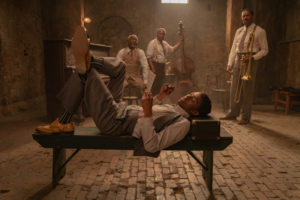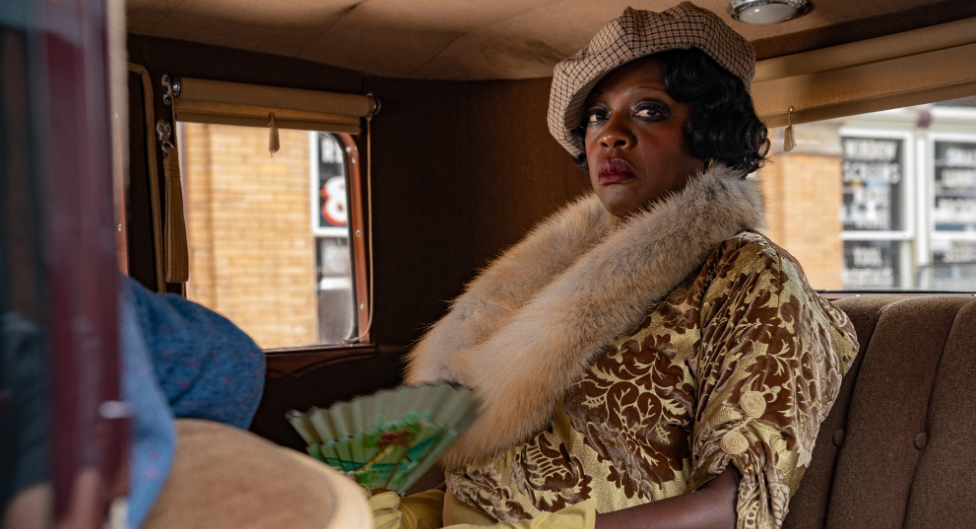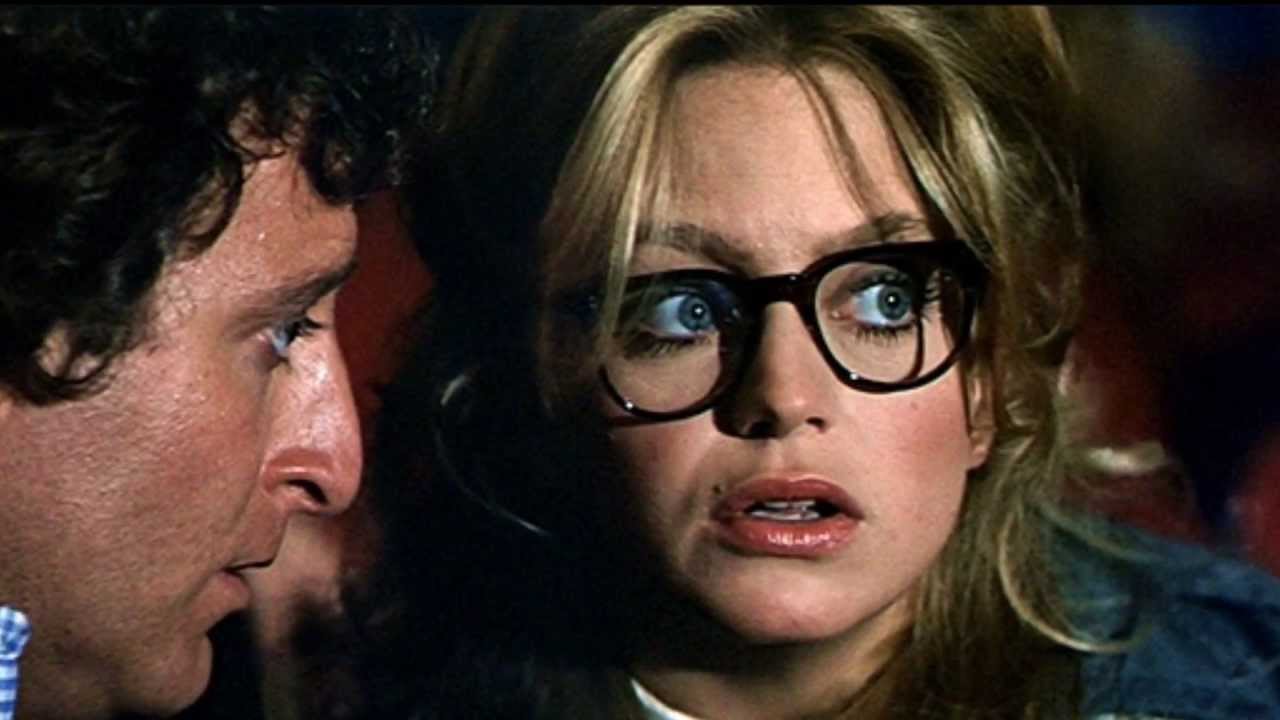I’m going to miss Chadwick Boseman. In fact, I’m going to miss him a lot. All of which makes it that much sadder to report that his final film isn’t worth your attention. Ma Rainey’s Black Bottom is equally as misplaced as the disturbingly suggestive nature of its title. It feels like a play. It looks like a play. It smells like a play. Good thing I didn’t step in it.
Halfway through this monument to limited sets and dead-end conversations, I thought, “You know what this reminds me of? Fences.” You might remember I also did not like Fences – it was too long and also replete with dead-end conversations and unchanging scenes. Turns out Fences and Ma Rainey’s Black Bottom are indeed both plays and both written by Pulitzer recipient August Wilson. And they’re both godawful broing.
Why, look, it’s somebody’s basement. You’re gonna shoot 75% of the entire film in a basement? That’s your choice, 75% basement. Ok, it’s your film. Well, obviously you’ve got a lot to say, right? What’s that? A lot of talk about shoes. Ok. Well, I’m sure that just filler material, right? What’s that? Creates the seminal moment of the climax. Huh. Damn, fellas. You’re really not giving me much to work with here.
Ma Rainey (Viola Davis) was a blues singer who made it big in the early part of the 20th Century. Apparently, she made it big enough to make demands in a white world, which – give her time and place- was pretty impressive. This is, however, one of the key ways in which the film loses me — if it could make a statement of “yes, she was huge, but still treated poorly because of discrimination” that’s a statement. We’ve seen that statement before, of course, but at least it is a statement. Viola Davis approaches Ma Rainey with exactly one gear: surly. I’m not sure what possessed Viola Davis to hoist up her surly girdle, but lemme tell ya, she never took it off the whole damn film.
The story isn’t really about Ma Rainey or her Black Bottom, however, it’s about the stage band she uses for some NYC studio recordings. Ma is there to make her record and leave, but the band members do the back-up routine for a living and thus have more pedestrian concerns on their minds, like where their next meal is coming from. Levee (Boseman) is the black sheep of the players. As the youngest and most outspoken member, he still has dreams of conquering audiences, not just playing back-up. And this is where the conflict –for lack of a better word –comes in. Levee is clearly at odds with his fellow band members on matters of style and maybe between talking about shoes and mistresses and stuttering they’ll all eventually find a sensitive issue at some point … but don’t count on it.
routine for a living and thus have more pedestrian concerns on their minds, like where their next meal is coming from. Levee (Boseman) is the black sheep of the players. As the youngest and most outspoken member, he still has dreams of conquering audiences, not just playing back-up. And this is where the conflict –for lack of a better word –comes in. Levee is clearly at odds with his fellow band members on matters of style and maybe between talking about shoes and mistresses and stuttering they’ll all eventually find a sensitive issue at some point … but don’t count on it.
Audiences are going to flock to Ma Rainey because of Chadwick Boseman. I’d much rather you took a look at some of his other non-Avengers work, like 42 or Marshall. This film left me both empty and seriously wondering, “Was the real Ma Rainey like this?” For a musical film, there was precious little music in it as if the director deliberately chose meaningless basement conversations over something his audience might enjoy. When it comes right down to it, if you turn on a jazz film to watch jazzy jazz folks jazz it up jazzily and instead get four men arguing in a basement, how happy are you going to be?
Ma Rainey excelled at jazz early
We can all contemplate that, Shirley
Yet the director would state
“My film will dictate
That her countenance was forever surly”
Rated R, 94 Minutes
Director: George C. Wolfe
Writer: Ruben Santiago-Hudson
Genre: Plays that should stay in play form
Type of being most likely to enjoy this film: People who write term papers on August Wilson
Type of being least likely to enjoy this film: Avengers fans



